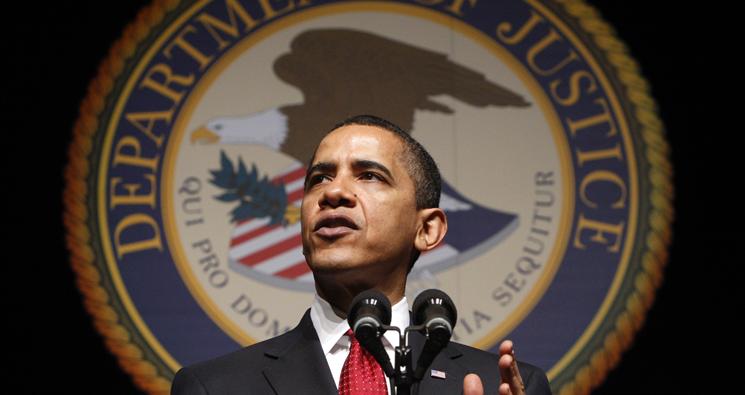Fast & Furious is Now Obama’s Problem
The debacle that is the Fast and Furious scandal is now officially President Obama’s problem. Yesterday, in response to the President’s recent decision to invoke executive privilege over the documents subpoenaed by the House Oversight and Government Reform Committee, Chairman Darrell Issa sent a letter to President Obama seeking clarification on several key points.
First, the letter reminds the President that:
Courts have consistently held that the assertion of the constitutionally-based executive privilege…is only applicable with respect to documents and communications that implicate the confidentiality of the President’s decision-making process, defined as those documents and communications to and from the President and his most senior advisors.
Keep in mind that Attorney General Holder has repeatedly testified under oath that neither he nor the President were knowledgeable of this program during the time in question. That begs the question of how any of the documents are eligible for protection under executive privilege. However, leaving that aside for the moment, Chairman Issa proceeds:
Accordingly, your privilege assertion means one of two things. Either you or your most senior advisors were involved in managing Operation Fast and Furious and the fallout from it, including the false February 4, 2011 letter provided by the Attorney General to the Committee, or, you are asserting a Presidential power that you know to be unjustified solely for the purpose of further obstructing a congressional investigation. To date, the White House has steadfastly maintained that it has not had any role in advising the Department with respect to the congressional investigation. The surprising assertion of executive privilege raised the question of whether that is still the case.
Until now, Chairman Issa and the U.S. Congress have been focusing the investigation on the actions of the Department of Justice (DOJ) generally, and Attorney General Holder specifically. However, now that the President has chosen to engage the issue by invoking executive privilege, it has become his problem. Clearly – political calculations aside – the President has an obligation to cooperate with the effort to find answers for the family of Border Patrol Agent Brian Terry, who was killed by one of the guns released through the Fast and Furious program.
Additionally, while the President has asserted executive privilege, he has yet to provide the Committee with a summary of the documents for which he is claiming executive privilege. Chairman Issa has repeatedly said that he would exempt any documents listed in such a summary, so long as it is accompanied by a sound legal justification for such an exemption. However, given that the Committee has not been told which documents necessitate protection under executive privilege, it has been impossible to grant such an exemption.
And yet, even after all of this, and even as the contempt vote scheduled for Thursday in the U.S. House of Representatives looms, Chairman Issa again reiterated his desire for a resolution:
I remain hopeful that the Attorney General will produce the specified documents so that we can work towards resolving this matter short of a contempt citation. Furthermore, I am hopeful that, consistent with assertions of executive privilege by previous Administrations, you will define the universe of documents over which you asserted executive privilege and provide the Committee with the legal justification from the Justice Department’s Office of Legal Counsel (OLC).
Until now, the stonewalling conducted by Attorney General Holder was a problem for the DOJ. Now, in light of President Obama inserting himself into the matter, it has become a problem for the President. Whenever the documents in question are finally released, the President will have to answer for whatever is contained in them.

